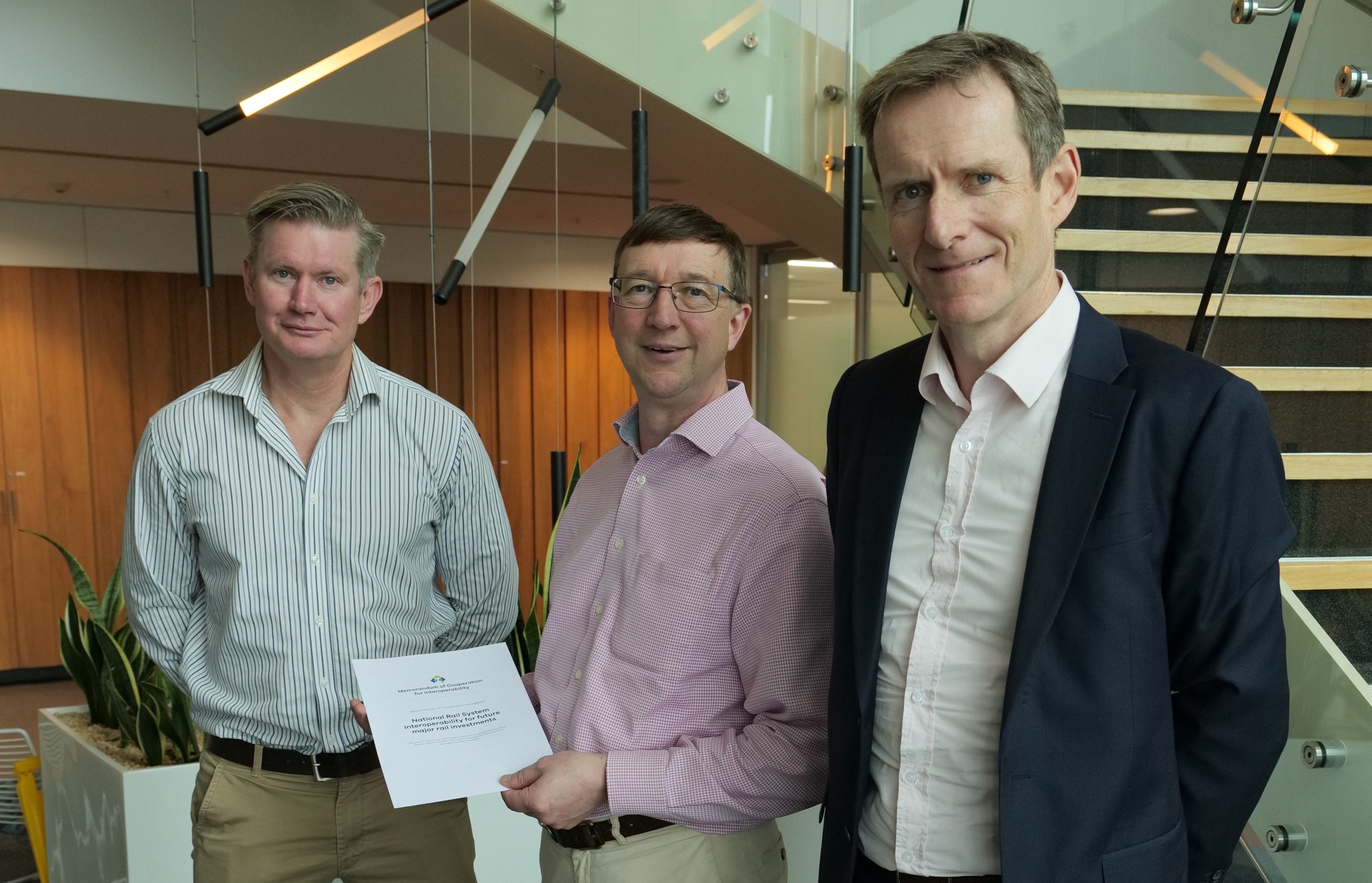Metro signs Memorandum of Cooperation
Metro signs Memorandum of Cooperation
Metro has signed a Memorandum of Cooperation, committing to work with other rail operators and stakeholders to harmonise rail operations across Australia. The memorandum was put forward by the National Transport Commission and supported by the Australasian Railway Association, following agreement from state and territory ministers at National Cabinet.
Different rules, standards, systems, gauges and rolling stock limit rail’s capacity to support Australia’s productivity. The memorandum commits rail operators, governments, and the industry to a long-term vision for passengers and freight to move seamlessly and safely between major cities and regions.
CEO Raymond O’Flaherty says it’s an initiative Metro is proud to support: “The signing of this memorandum demonstrates Metro’s ongoing commitment to work with our stakeholders towards a common goal of keeping Melbourne moving.”
Executive Director, Network Assets and Assurance Paul O’Halloran says Metro has an important role to play: “As operators and maintainers of state assets we’re acutely aware of the challenges and complexities of maintaining various assets across our networks, interoperability provides benefits for the entire industry.”
Metro’s commitment to this goal is led by our Chief Engineer, Phil Ellingworth, who is a member of the National Transport Commission Interoperability Advisory Group: “The memorandum is an important foundation stone to build cooperation and momentum across the industry.”
Over time, interoperability can deliver the following benefits:
- Seamless experience for our passengers and freight operations
- Improved value and consistency in rail procurement
- Making it easier to share innovation
- Removing barriers that prevent work crews operating across networks
- Removing barriers to mobility of team members and increased training costs
- Harmonising train control systems
Metro will continue to advance these goals through participation in the National Transport Commission’s Interoperability Advisory Group.

